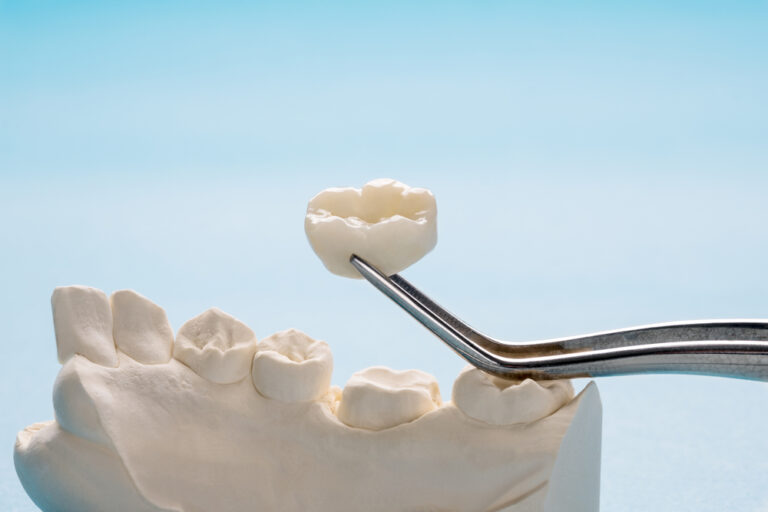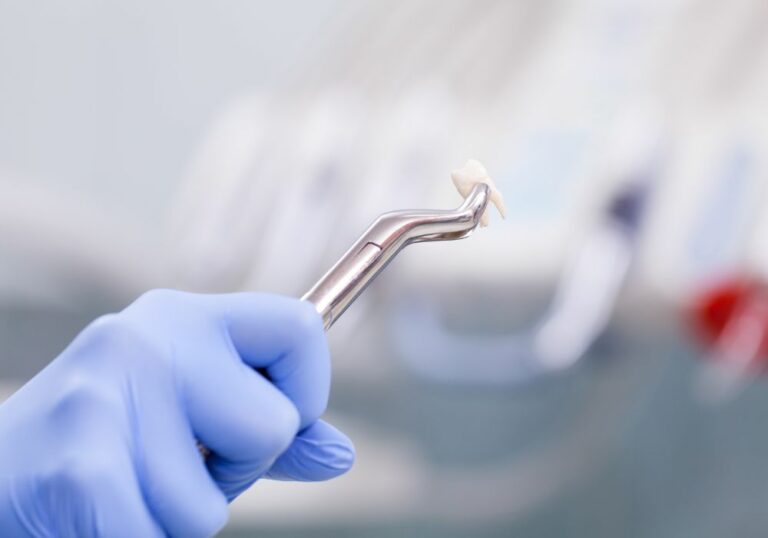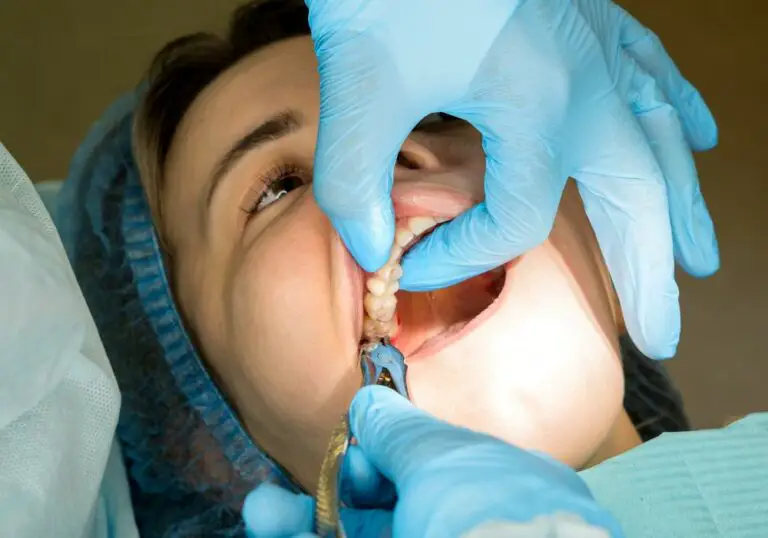Do you experience sharp pain in your teeth when you eat or drink something cold? If so, you may be one of the millions of people who suffer from cold tooth sensitivity. This common condition can be caused by a variety of factors, including gum recession, enamel erosion, and tooth decay. While it can be uncomfortable, the good news is that cold tooth sensitivity can often go away on its own or with proper treatment.
The severity and duration of cold tooth sensitivity can vary from person to person. In some cases, the pain may only last for a few seconds, while in others it can persist for several minutes. If you experience cold tooth sensitivity, it is important to talk to your dentist to determine the underlying cause and develop an appropriate treatment plan. In some cases, simply avoiding certain foods and drinks or switching to a toothpaste designed for sensitive teeth may be enough to alleviate the symptoms. However, more severe cases may require more extensive treatment, such as a filling or crown to repair a damaged tooth.
Understanding Tooth Sensitivity

If you experience a sharp, sudden pain in your teeth when you eat or drink something cold, hot, sweet, or sour, you may have tooth sensitivity. This condition affects millions of people worldwide, and it can be caused by a variety of factors, including:
- Worn or thinning tooth enamel
- Tooth decay and cavities
- Gum recession
- Brushing your teeth too hard
- Gum disease
- Teeth grinding or clenching
Tooth sensitivity occurs when the protective enamel layer of your teeth is compromised, exposing the underlying dentin, which contains tiny tubes that lead to the nerve endings in your teeth. When these tubes are exposed to hot or cold stimuli, they can trigger pain signals that travel to your brain, causing discomfort.
Fortunately, tooth sensitivity is usually treatable, and there are several remedies available that can help alleviate your symptoms. These include:
- Using desensitizing toothpaste
- Applying fluoride varnish or gel to your teeth
- Using a soft-bristled toothbrush and brushing gently
- Avoiding acidic, sugary, and intensely flavored foods and drinks
- Wearing a nightguard if you grind or clench your teeth
- Getting regular dental checkups and cleanings
It’s important to note that tooth sensitivity can sometimes be a sign of a more serious dental problem, such as a cracked tooth or an abscess. If your tooth sensitivity persists or worsens despite home remedies, you should consult your dentist for an evaluation.
Causes of Cold Tooth Sensitivity
If you experience tooth sensitivity when eating or drinking cold foods, you’re not alone. Cold tooth sensitivity is a common dental problem that affects many people. The following are some of the most common causes of cold tooth sensitivity:
Enamel Erosion
Enamel erosion is one of the most common causes of cold tooth sensitivity. Enamel is the hard, protective outer layer of your teeth, and it can become worn down over time due to a variety of factors, including:
- Acidic foods and drinks
- Brushing your teeth too hard
- Grinding your teeth
- Age-related wear and tear
When enamel wears down, it can expose the sensitive inner layer of your teeth, called dentin, which can cause cold tooth sensitivity.
Gum Recession
Gum recession occurs when your gum tissue pulls away from your teeth, exposing the roots. This can be caused by a variety of factors, including:
- Gum disease
- Brushing your teeth too hard
- Age-related wear and tear
When the roots of your teeth become exposed, they can be sensitive to cold temperatures.
Tooth Decay
Tooth decay is another common cause of cold tooth sensitivity. When bacteria in your mouth produce acid, it can eat away at your tooth enamel and cause cavities. If left untreated, cavities can expose the sensitive inner layer of your teeth, causing cold tooth sensitivity.
Overall, cold tooth sensitivity can be caused by a variety of factors, including enamel erosion, gum recession, and tooth decay. If you’re experiencing cold tooth sensitivity, it’s important to talk to your dentist to determine the underlying cause and develop a treatment plan.
Can Cold Tooth Sensitivity Go Away?

If you are experiencing cold tooth sensitivity, you might be wondering if it will ever go away. The answer is: it depends.
In some cases, cold tooth sensitivity can go away on its own. For example, if the sensitivity is caused by a temporary issue like a recent dental procedure or using teeth whitening products, the sensitivity may subside over time as your teeth adjust.
However, if the sensitivity is caused by a more serious issue like tooth decay or gum disease, it is unlikely to go away without treatment. In fact, the longer you wait to seek treatment, the worse the problem can become.
There are some things you can do to help alleviate cold tooth sensitivity in the meantime. For example, you can try using a toothpaste specifically designed for sensitive teeth or avoiding very cold foods and drinks.
If your cold tooth sensitivity does not go away on its own or with at-home remedies, it is important to see a dentist. They can help identify the underlying cause of your sensitivity and recommend the appropriate treatment.
Remember, it is always better to address dental issues sooner rather than later. So if you are experiencing cold tooth sensitivity, don’t wait to seek help.
Preventing Cold Tooth Sensitivity
If you have ever experienced tooth sensitivity to cold, you know how uncomfortable it can be. Fortunately, there are steps you can take to prevent it from happening in the first place.
Proper Oral Hygiene
One of the most effective ways to prevent tooth sensitivity is to maintain proper oral hygiene. This includes brushing your teeth at least twice a day for two minutes each time and flossing once a day. By keeping your teeth and gums clean and healthy, you can reduce your risk of developing tooth sensitivity.
Use of Desensitizing Toothpaste
Another way to prevent tooth sensitivity is to use a desensitizing toothpaste. These toothpastes contain ingredients that help to block the nerve signals that cause tooth sensitivity. They can be used as part of your regular oral hygiene routine and can provide long-lasting relief from tooth sensitivity.
Regular Dental Checkups
Regular dental checkups are also important for preventing tooth sensitivity. During these visits, your dentist can identify any potential issues that could lead to tooth sensitivity and provide treatment before the problem becomes more serious. Your dentist may also recommend additional preventive measures, such as fluoride treatments or dental sealants, to help protect your teeth from sensitivity.
By following these steps, you can reduce your risk of developing tooth sensitivity to cold and enjoy a healthy, pain-free smile.
Treatment Options for Cold Tooth Sensitivity

If you are experiencing cold tooth sensitivity, there are several treatment options available to help alleviate your discomfort. Here are some of the most common treatments:
Fluoride Gel Treatment
Fluoride gel treatment is a popular option for treating cold tooth sensitivity. During this treatment, your dentist will apply a high concentration fluoride gel to your teeth. The fluoride helps to strengthen the enamel on your teeth, which can reduce sensitivity. This treatment is typically done in-office and can take anywhere from 30 minutes to an hour.
Dental Bonding
Dental bonding is another option for treating cold tooth sensitivity. During this treatment, your dentist will apply a tooth-colored resin to the affected teeth. The resin is then hardened with a special light. This treatment can help to cover exposed root surfaces and reduce sensitivity. Dental bonding is typically done in-office and can take anywhere from 30 minutes to an hour.
Root Canal Therapy
If your cold tooth sensitivity is severe, your dentist may recommend root canal therapy. During this treatment, the nerve and pulp of the affected tooth are removed and replaced with a filling. This treatment can help to eliminate sensitivity, but it is typically only used as a last resort.
It is important to note that the effectiveness of these treatments can vary depending on the cause and severity of your cold tooth sensitivity. It is always best to consult with your dentist to determine the best course of treatment for your individual needs.
Frequently Asked Questions
How can I treat sudden tooth sensitivity to cold air?
If you experience sudden tooth sensitivity to cold air, you can try using a desensitizing toothpaste. These toothpastes contain compounds that help block the transmission of sensations from the tooth surface to the nerve. You can also try avoiding cold foods and drinks, as well as using a mouthguard to protect your teeth from air exposure.
What are some ways to stop sensitive teeth pain immediately?
If you experience sudden sensitive teeth pain, you can try rinsing your mouth with warm salt water. This can help reduce inflammation and soothe the pain. You can also try applying a cold compress to the affected area, or taking over-the-counter pain medication like ibuprofen.
Why are my teeth suddenly sensitive to cold?
There are several reasons why your teeth may suddenly become sensitive to cold. This can be caused by tooth decay, gum disease, teeth grinding, or even brushing your teeth too hard. It can also be caused by recent dental procedures like fillings or crowns.
What can I do to fix my cold sensitive teeth?
If you have cold sensitive teeth, you can try using a desensitizing toothpaste or getting a fluoride treatment from your dentist. You can also try using a mouthguard to protect your teeth from cold air exposure. In some cases, your dentist may recommend a root canal or other dental procedure to fix the underlying issue causing your sensitivity.
Can tooth sensitivity to cold come and go?
Yes, tooth sensitivity to cold can come and go. This can be caused by changes in temperature or changes in your dental hygiene routine. If your sensitivity persists or worsens, it is important to see your dentist to determine the underlying cause.
What causes sudden tooth sensitivity to cold?
Sudden tooth sensitivity to cold can be caused by a variety of factors, including tooth decay, gum disease, teeth grinding, recent dental procedures, or even brushing your teeth too hard. It is important to see your dentist to determine the underlying cause and receive appropriate treatment.






